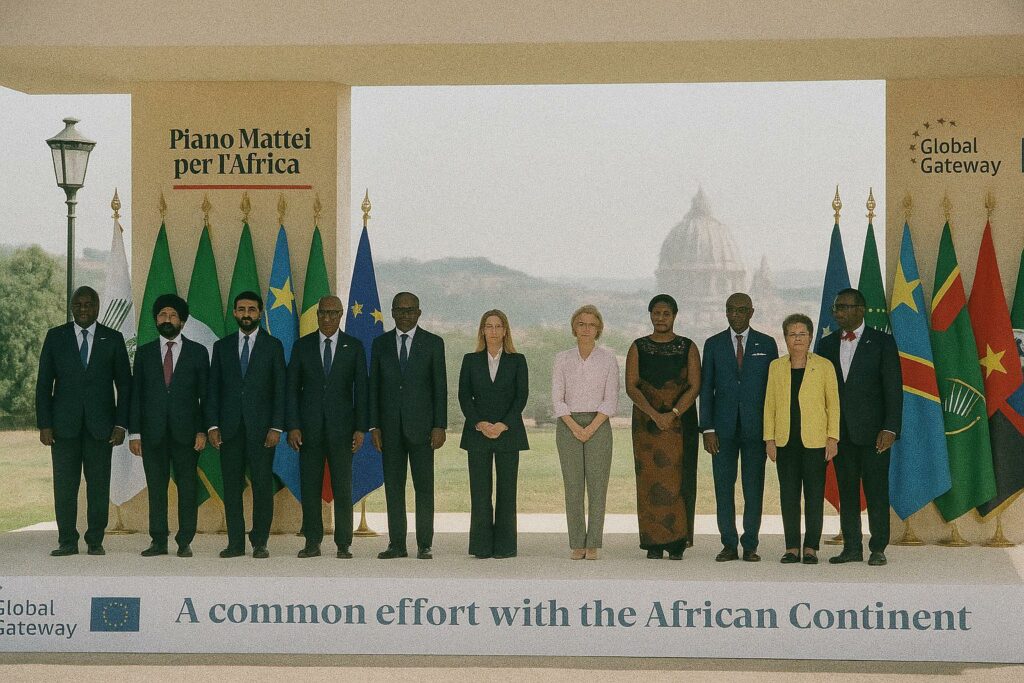Italy’s Ambitious African Gambit
In an audacious bid to both stem migration from Africa and expand Italian influence, Giorgia Meloni unveiled the ‘Plan Mattei,’ a strategy that has ignited both optimism and skepticism. The plan was announced at a summit co-chaired by European Commission President Ursula von der Leyen in Rome. Boasting a commitment of over €1.2 billion in investments from both Italy and Europe to the African continent, Meloni’s ambitious project is positioned as a response to the pressing migration crisis.
The Legacy of Enrico Mattei: Inspiration and Ambitions
Named after Enrico Mattei—an Italian visionary in the oil industry known for pioneering advantageous petroleum contracts—the plan seeks to emulate Mattei’s legacy by creating equitable and development-focused partnerships. Giorgia Meloni’s government envisions €5.5 billion of investments in its initial stages spread across 14 African nations, aiming to lay the foundation for economic growth and reduce the factors driving emigration.
Challenges and Criticisms of the Plan
While the plan champions the notion of self-sufficient economic growth to combat migration, critics like Giovanni Carbone, a professor at the University of Milan, cast doubt on its feasibility. He argues that the scale of investment seems disproportionately small compared to the colossal challenges at hand. Meanwhile, some African leaders and observers express concerns over whether Italy’s promises will translate into substantive change, stressing that deeper financial and infrastructural barriers persist across the continent.
Economic and Geopolitical Undertones
Beyond humanitarian goals, the ‘Plan Mattei’ also appears strategically aligned with Italy’s energy demands, especially in the wake of geopolitical shifts like Russia’s invasion of Ukraine. The initiative aims to forge stronger energy links with Africa, particularly Algeria, underscoring a pragmatic Italian approach to diversify its energy sources.
Plan Mattei: Business or Development?
Amidst these developments, questions arise on whether the investments primarily benefit Italian industrial giants such as Eni and Terna rather than the wider African populace. Controversy lingers over the extent to which the ‘Plan Mattei’ might prioritize Italian corporate interests, particularly in the fossil fuel sector, over tangible development outcomes in Africa.

